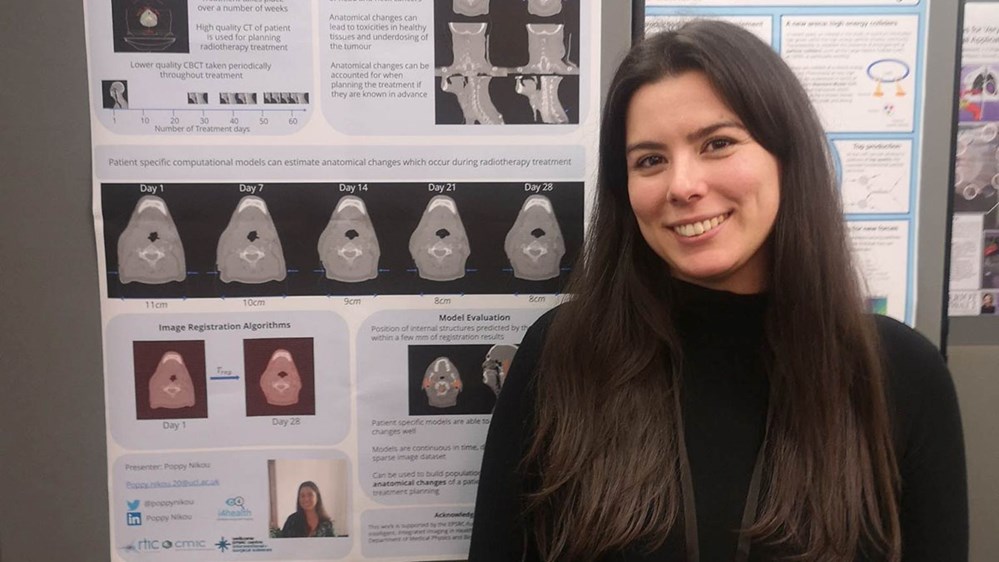Researching radiotherapy
Poppy uses her love of physics to develop and research treatments for cancer patients.

Job: PhD Student at UCL
Why did you choose to become an engineer?
What attracted me the most to my PhD role was the multi-disciplinary nature of the work I do. This means there is an endless number of problems to solve, and an endless number of different directions in which you can take to solve it.
What do you love about your job?
I love that by combining different aspects from physics, biology, computing and maths you can help solve problems which have an impact to treatment of patients.
How did you get started as an engineer?
At school I always really enjoyed maths and physics, so I went on to study an integrated masters in physics at the University of Manchester. During the time of my degree the first NHS proton beam therapy center in the UK was commissioned in Manchester.
This was exciting and so did my masters project at this center. So, when I learned that the next center would open in London, I looked for opportunities to work with the new team here. This is how I ended up starting my PhD project in ‘anatomical uncertainties in proton beam therapy’.
How does your work make a difference to peoples’ lives?
My research is within the medical physics field, and specifically on radiotherapy treatment of cancer patients. During radiotherapy, patients are imaged using medical images. My research uses these medical images to model the anatomical changes which are seen in head and neck cancer patients during their radiotherapy treatment. The aim is to work out what those changes could be before they happen, which will allow us to incorporate that information into their treatment plan.
What was the last exciting project you worked on?
My PhD research has got to be the most exciting research project I have worked on. I develop methods of modelling anatomical changes of head and neck cancer patients during their radiotherapy treatment. As part of my time as a PhD student, I have also worked on exciting outreach projects which have included participating in events and developing activities to help explain our research to the public.
What advice would you give a young person who was considering engineering as a future career?
Just go for it! The worst response that anyone will give you is a ‘no’.
What skills and personal qualities are important for being an engineer?
I think the most important skills are persistence, good communication and a sprinkle of creativity.